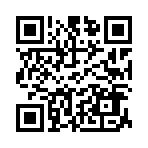Two different stories bring together how Facebook is becoming used more in public life. The first is from the MIT Technology Review dated 12 July 2012 by David Zax and is entitled “Facebook, CNN, and the Rise of Social Voting“, the second appears on The Register of 18 July 2012 and is written by Neil McAllister and headed “Washington State to allow voter registration via Facebook“. The first piece with its subtitle of “Can technology disrupt democracy” is possibly the scariest, although it mainly concerns the development of a Facebook app by CNN that permits endorsement of candidates and issues, along with a commitment to vote, by Facebook users. The piece also names a few related applications: ElectNext, Votizen and PopVox. What is perhaps concerning in the first case is that due to the ‘now’ factor involved in social media voting might be reflecting journalistic leads from CNN.
The second piece is a much simpler use of Facebook with Washington State (not DC!) harvesting names and dates-of-birth from Facebook into their voter registration system. This will obviously require the originating user to be real and the data to be accurate. I recall attempts in the UK to register Mickey Mouse and the pet hamster on more than one occasion!
In general it does indicate a general look to social media to increase democratic input. However, if someone can’t fill out a registration form occasionally and turn up at a polling station every so often, representative democracy is dead and we need to be looking at a new way of delivering it – as Marshall Ganz has said “the chance for people to become actors and not just spectators in the drama of life”. [New Statesman, 16 July 2012, p.54].



 Posted by greatemancipator
Posted by greatemancipator 
